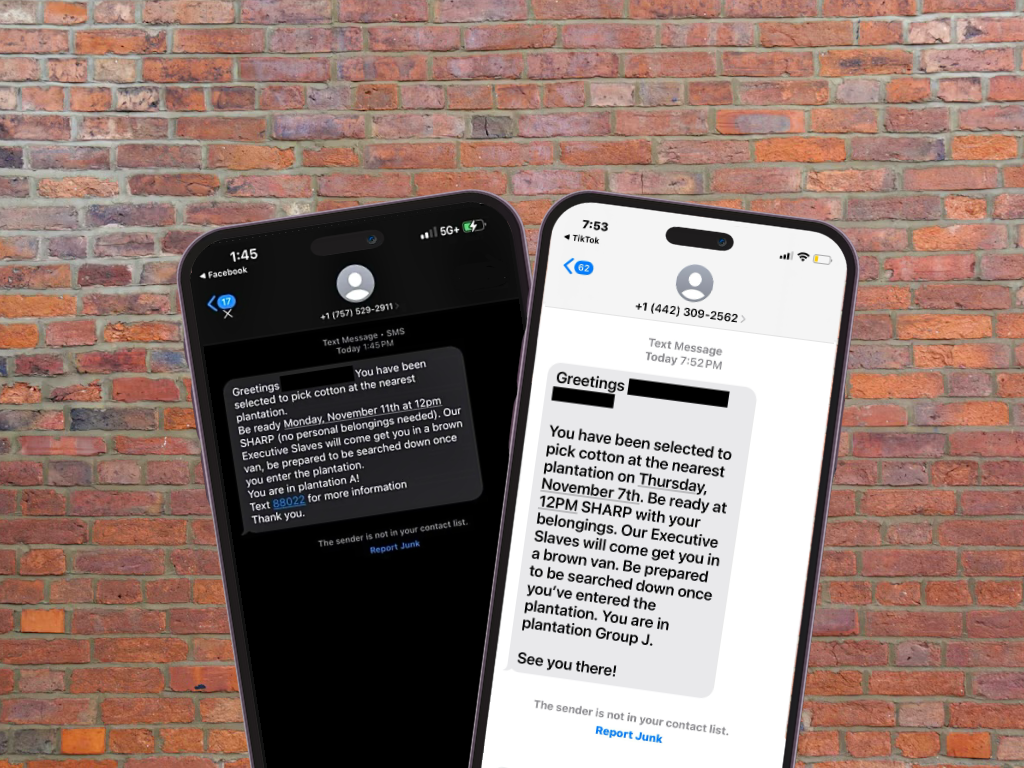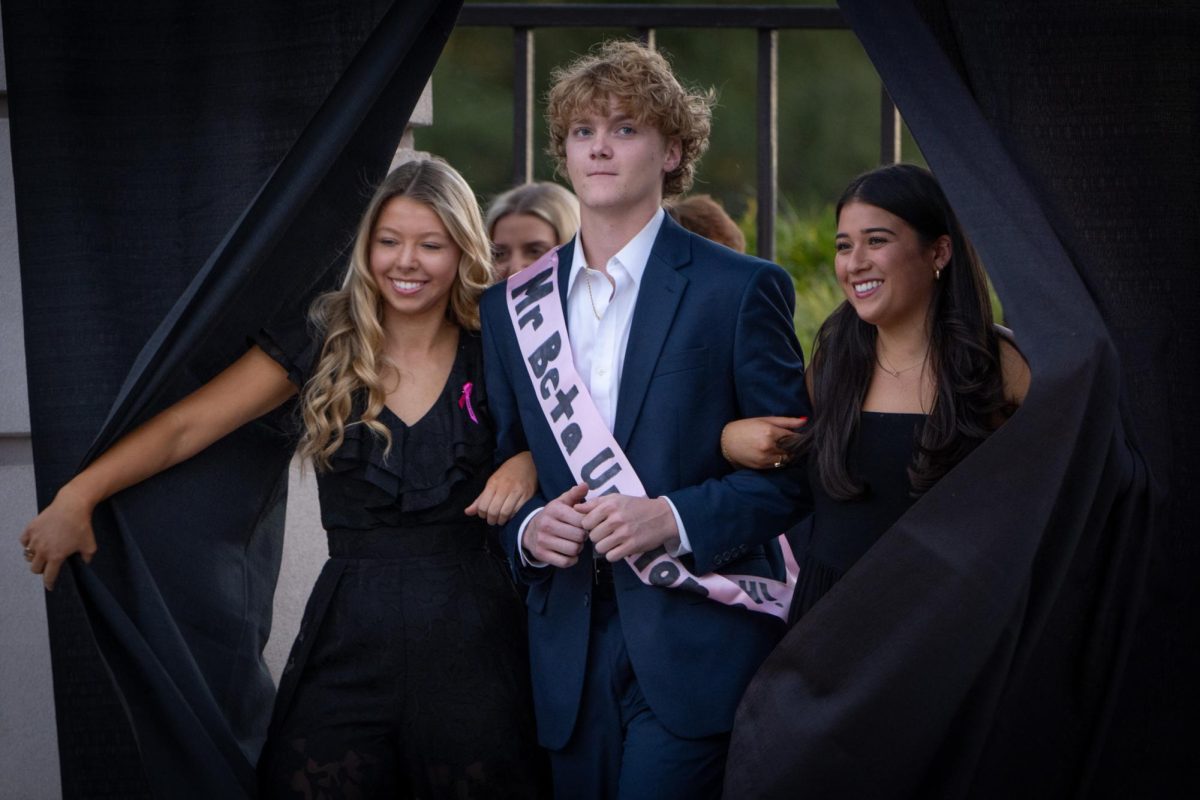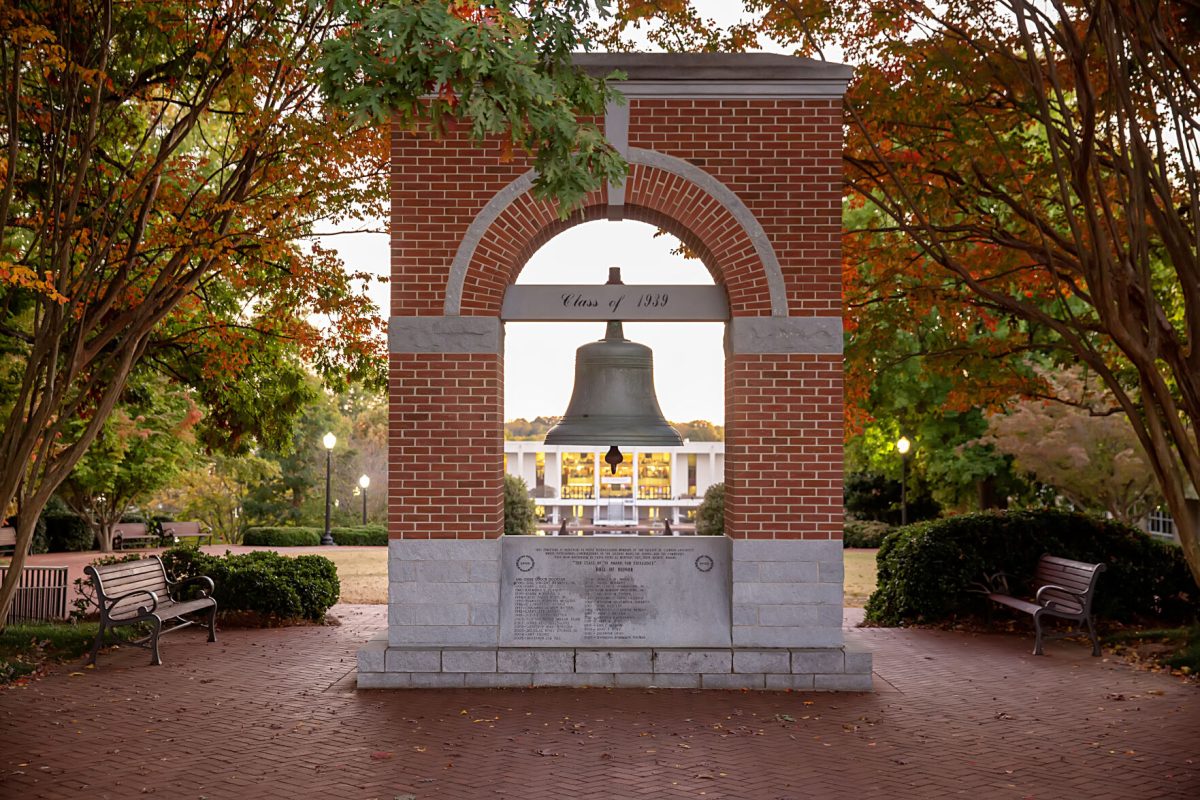Black Clemson students reported being targeted with text messages containing racist and discriminatory language following the election last Wednesday.
These texts appear to be part of a nationwide trend, with other universities and cities across the country reporting similar text messages being received by students.
“I was told I was going to be ‘picked up’ to be taken to ‘my plantation.’ My immediate reaction was fear. I was instantly scared for my safety as well as the safety of my friends and family who look like me.
“My next emotion, however, was anger. It’s been anger ever since,” Amiya Alston, a junior pre-pharmacy major at Clemson, told The Tiger in an interview. Alston noted that she received the message the day after the presidential election while at her late-night lab.
Clemson University Police Department released a statement on Wednesday, Nov. 6, stating they had “received reports of students receiving text messages containing disparaging language from unrecognized numbers.” The department also said they had determined the numbers to be associated with online spoofing sites.
Spoofing refers to when someone disguises their contact information, such as email, name, phone number or website, to convince the recipient they are a trusted source, according to the FBI.
In an update, CUPD said they had communicated with the South Carolina Law Enforcement Division’s Fusion Center, concluding that Clemson students were not the only individuals to have received these messages.
The University of Alabama’s student newspaper, The Crimson White, also reported Black students receiving these messages, stating they originated from “TextNow,” a free messaging service that can create an essentially untraceable “burner” number.
Parents of students at Clemson took to the “Clemson University Class of 2028 – Parents” Facebook group condemning these messages, stating they were “heartbreaking” and that those responsible must be punished.
Other individuals who received these messages took to X, formerly known as Twitter, to share images of what they had received.
The racist messages included statements such as, “You have been selected to pick cotton at the nearest plantation” and “Our Executive Slaves will come get you in a brown van. Be prepared to be searched down once you enter the plantation.”
Some students received messages addressing them by name, while some messages also detailed certain groups and dates on which these vans would “come get” individuals. Several students also reported messages being signed with “A TRUMP SUPPORTER,” according to Tulsa World.
Many who received these messages, including Alston, believe they were in reaction to the results of last Tuesday’s election when president-elect Donald Trump was reelected for his second term, as the messages began to circulate early Wednesday morning.
Karoline Levitt, a spokesperson for Trump’s campaign, said the campaign had “absolutely nothing to do with these text messages.”
“It’s an attack on a large group of people, some people would go as far as to call it an act of terrorism,” Alston told The Tiger. “It just goes to show that our country has not made much progress in terms of racial equality because black people are still being profiled and discriminated against.”
In a public statement, South Carolina Attorney General Alan Wilson called these messages “vile and deplorable.”
The FBI released a statement that it is “aware of the offensive and racist text messages sent to individuals around the country and is in contact with the Justice Department and other federal authorities on the matter.”
CUPD is continuing to investigate these messages but deems there is no “credible threat to members of the University community.”
Alston believes that Clemson administration and student affairs should be doing a better job of reaching out to affected students, providing support, valuing diversity and prioritizing students’ comfort because of the “threatening” messages causing a mental toll on the school’s Black population. Alston thinks that the messages spread the narrative that the “majority” is out to get the “minority” community at predominantly white institutions.
Alston also noted that it’s “reassuring” knowing that CUPD is investigating the situation but that this is an issue beyond CUPD.
“Authorities need to figure out who is behind these messages before they turn into hate crimes and not just hate speech,” Alston told The Tiger.










